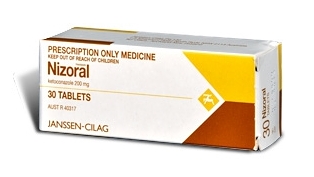 The trend of energy drink lawsuit claims are in the rise. For example, Monster Energy drink may be extremely dangerous, according to a growing number of energy drink lawsuit filings. These beverages, which contain large amounts of caffeine, along with other stimulants, may cause a wide variety of sudden, life-threatening side effects, including:
The trend of energy drink lawsuit claims are in the rise. For example, Monster Energy drink may be extremely dangerous, according to a growing number of energy drink lawsuit filings. These beverages, which contain large amounts of caffeine, along with other stimulants, may cause a wide variety of sudden, life-threatening side effects, including:
- Caffeine toxicity or poisoning
- Dehydration
- High blood pressure
- Heart palpitations
- Cardiac arrest
- Sudden Death
In October 2012, the U.S. Food & Drug Administration (FDA) began investigating five deaths possibly associated with Monster Energy drink. Just a year prior, the Drug Abuse Warning Network reported a tenfold spike in emergency room visits involving energy drinks. Nearly 70% of those cases involved children between 12 and 17 who consumed an energy drink on its own, without the addition of any drugs or alcohol. Thus, energy drink lawsuit claims are on the rise.
Gilman Law LLP, a leading consumer protection law firm with over 40 years of experience safeguarding the rights of victims, is investigating energy drink lawsuit claims on behalf of individuals who suffered life-threatening health problems following consumption of Monster Energy drink or a similar product. If your loved one died in a manner that suggests an energy drink was to blame, you may also be eligible to file an energy drink lawsuit for their wrongful death. For a free, no obligation evaluation of your energy drink lawsuit, please contact Gilman Law LLP as soon as possible.
Energy Drink Lawsuit Deaths
Energy Drinks are extremely popular, racking up more than $12 billion in sales in 2012 alone. Many of these products are marketed to teens, through social media, extreme sporting events, and the sponsorship of teen athletes. Shockingly, the FDA does not require the makers of energy drinks to list the exact amount of caffeine on their labels. Energy drinks are also not subjected to the relatively low caffeine limits that govern soda manufacturers, as they are regulated as dietary supplements, not foods.
According to the Monster Energy Drink label, the product contains 240 mg of caffeine, the equivalent to what would be found in seven cups of coffee. However, a Consumer Reports investigation published in October 2012 found that 27 of the most popular brands of energy drinks sold in the U.S. contained a different amount of caffeine than was on the label, or did not list the amount of caffeine at all. Some health experts say the caffeine content in energy drinks can be as high as 550 mg.
In October 2012, the FDA launched an investigation into five deaths possibly related to the consumption of Monster Energy Drink. However, the agency noted that the reports don’t prove that Monster Energy Drinks caused the deaths, and has yet to take any action regarding Monster’s labeling. In March 2013, however, the maker of Monster Energy Drink announced it would now sell the product as a beverage, rather than a nutritional supplement. The change means Monster will no longer be required to report any injuries or deaths possibly linked to the product to the FDA. However, it will be required to print caffeine levels on its cans for the first time ever.
While the FDA has yet to take action to protect consumers from the potentially harmful effects of energy drinks, a growing number of health advocates have called for much greater regulation due to energy drink lawsuit claims. For example, the American Medical Association voted in June 2013 to adopt a policy supporting a ban on the marketing of energy drinks to anyone under 18 years old. Among other things, the group cited “massive and excessive amounts of caffeine that may lead to a host of health problems in young people, including heart problems,” in its call to action.
Legal Help for Victims of Energy Drink Lawsuit Victims
A number of energy drink lawsuits have already been filed against the maker of Monster Energy Drink. If you or a loved one suffered serious heart problems following consumption of Monster or a similar energy drink, you may be entitled to significant compensation. For a no-obligation evaluation of your potential energy drink lawsuit, please fill out our energy drink lawsuit form or call us direct to speak with one of our attorneys at (888) 252-0048.



 Nizoral, a powerful antifungal treatment, has been associated with serious and life-threatening side effects, including:
Nizoral, a powerful antifungal treatment, has been associated with serious and life-threatening side effects, including:
 U.S. health regulators have placed strict limits on the use of oral Nizoral tablets after a review indicated the prescription anti-fungal medication causes potentially fatal liver injuries, as well as adrenal gland problems and dangerous drug interactions. In a communication issued on July 26th, 2013, the U.S. Food & Drug Administration (FDA) cautioned that Nizoral tablets should never be a first-line treatment for any fungal infection.
U.S. health regulators have placed strict limits on the use of oral Nizoral tablets after a review indicated the prescription anti-fungal medication causes potentially fatal liver injuries, as well as adrenal gland problems and dangerous drug interactions. In a communication issued on July 26th, 2013, the U.S. Food & Drug Administration (FDA) cautioned that Nizoral tablets should never be a first-line treatment for any fungal infection.